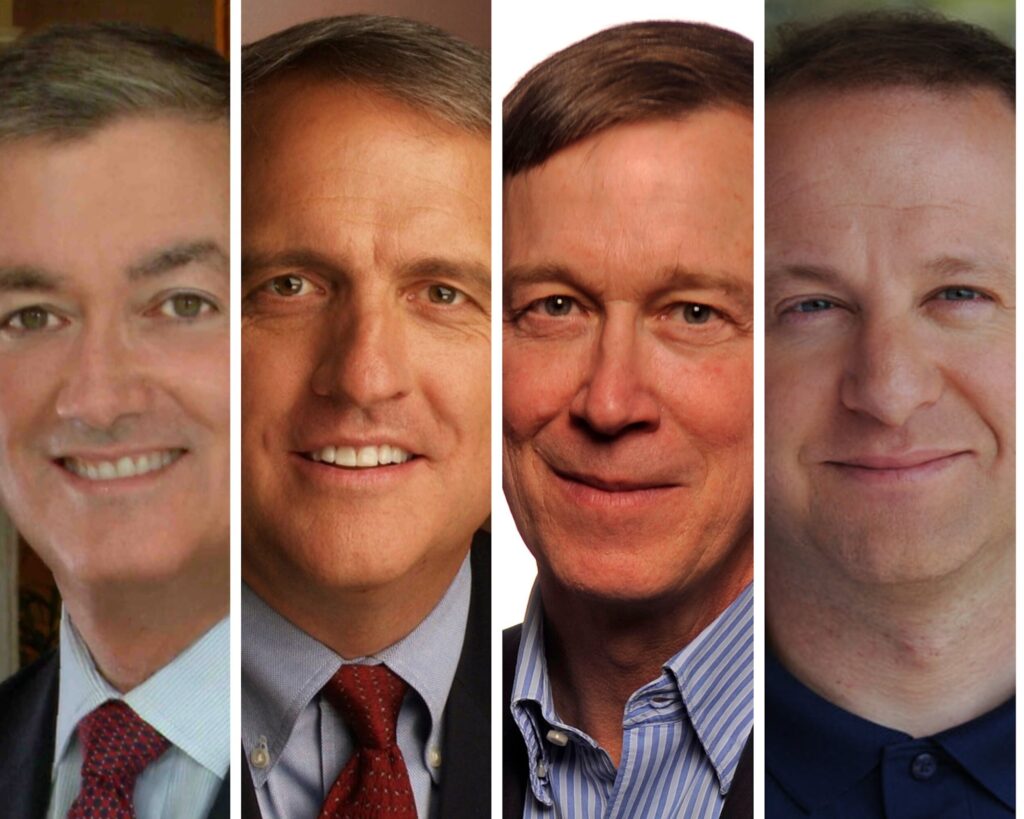SONDERMANN | Succession planning (or lack thereof) in both parties

In corporate America and in the nonprofit world, succession planning is a key element of leadership. No matter how opaque the process, any chief executive or board member not thinking about who is next at the helm is remiss in their duties.
Clearly, the political world plays by a different set of rules. Picking the next top dog happens in a far broader, more participatory manner, with the collision of ambitions on full public display.
Still, accumulating events are enough to prompt any political observer to question whether either party is prepared for what – or who – comes next.
Let’s look at the dilemma facing each party. In alphabetical order, Democrats first.
Perhaps the answer is that Joe Biden will be succeeded by … (wait for it) … Joe Biden. Three of the last four presidents have won a second term. The political ground could be favorable come 2024 with COVID becoming a more manageable, seasonal illness; the economy booming after the public health crisis recedes; and Congressional Republicans having predictably overreached after taking control of both houses in next year’s midterms.
All of those are plausible bets. But age accumulates and time marches undeniably on. By the fall of 2024, Biden will be approaching his 82nd birthday. Who knows how much of a toll the years between now and then will take?
No Democrat – from top strategists to high-dollar donors to precinct captains to stalwart voters – can take a reelection campaign as a given. In fact, the operating assumption has to be that Biden will be a one-term president by choice.
So what then?
Biden’s selection of Kamala Harris as his Veep was an unmistakable signal of his intentions. History would record him as a bridge between the country’s first Black president and its first female one.
Yet, whispers are no longer hushed and doubts are openly expressed as to whether she is up to the task. Her political track record is one of winning elections in the bluest of locales. It is anything but a sure thing that such political capability transfers to the national scene.
Harris’ political depth was called into doubt during her brief stay in the 2020 contest. Her political instincts have been less than stellar in her early months as vice president.
Plenty of senators and governors look like giant-killers in dominating the politics of their state but then struggle to hit major league pitching when on the presidential stage. Does anyone really believe that Harris would have won the 2020 election had she been the nominee?
With so much on the line in 2024, does the party hand her the keys and tell her to drive? Though on the flip side, how does the party deny the sitting vice president, and a woman of color to boot?
There is inside-the-beltway speculation that Pete Buttigieg is being groomed to succeed Biden. This column will pause here while you research all the South Bend mayors and transportation secretaries who have gone onto the White House.
But the worst-case scenario for Democrats is that Biden announces his exit after one term and then a free-for-all breaks out with no clear heir apparent as “progressives” battle “moderates,” Bernie Sanders delivers the keynote speech at the convention, and race and gender take center stage. In other words, the nightmare is that Democrats act as Democrats.
Now to flip the book over and inspect the Republican predicament.
Defeated presidential candidates rarely get a second look (Richard Nixon being the notable exception) and incumbent presidents who lose their reelection bid do not get another bite at the apple. Anyone recall a clamoring for Gerald Ford or Jimmy Carter or George H.W. Bush to give it another go? (If you rebut this by citing Grover Cleveland, you win entry into a political trivia tournament.)
Defying that history, the 2024 GOP nomination is regarded as being Donald Trump’s for the asking. Though that is the 2021 lay of the land. 2024 is endless months ahead. By that November election, Trump will be 78, Biden’s current age. How many cheeseburgers will be consumed between now and then?
Try as some Trumpists may to deny it, the inescapable reality is that Trump lost the popular vote in both of his races – this past year by a margin of over seven million while also coming up well short in the Electoral College.
Since then, surveys indicate that he has hemorrhaged as many as one out of five Republicans due to his post-election conduct. His political trajectory is distinctly downward with only limited ability to reverse course.
His baseless claims of a “stolen election” may keep the cult inflamed. But they will not wear well. Trump is unlikely to willingly relinquish his dominant position in his party. However, time and events will move on, and that position will slowly wither. Unless Biden makes a complete Carter-ish hash of things or goes full-on AOC “woke,” a Trump nomination in 2024 is an invitation to an electoral rout that even he cannot fantasize or insurrect away.
The GOP plight is that Trump’s enormous shadow restricts the movement of others. Nikki Haley, Tom Cotton, Josh Hawley, Ron DeSantis, Marco Rubio, Kristi Noem, Tim Scott, Mike Pompeo and assorted others can dance gingerly. (The image of Ted Cruz dancing is not fit for a family publication.) But Trump’s domineering presence keeps all of them from fast-stepping it too assertively.
The GOP brand is defined by Trump. Even if he ultimately passes on 2024, the Republican contest will be shaped by how candidates juxtapose to him. Some will go full-bore Trump. Others may try to be Trump with a smile. Or blue-collar Trump with actual policy heft. Or Trump with a different gender or skin tone along with a personal story. Someone, perhaps Ben Sasse, may steal a page from 7Up and run as the unTrump conservative.
Though it may well take at least one more conclusive defeat before Republicans can truly cast Trump to the shadows and rebrand in a way that has a fighting chance of recruiting a political majority.
Someone will win the presidency in 2024. That much is guaranteed. But from this vantage point, neither party can approach the task or look at their lineup with any kind of confidence.
Eric Sondermann is a Colorado-based independent political commentator. He writes regularly for ColoradoPolitics and the Denver Gazette. Reach him at?EWS@EricSondermann.com; follow him at @EricSondermann.













